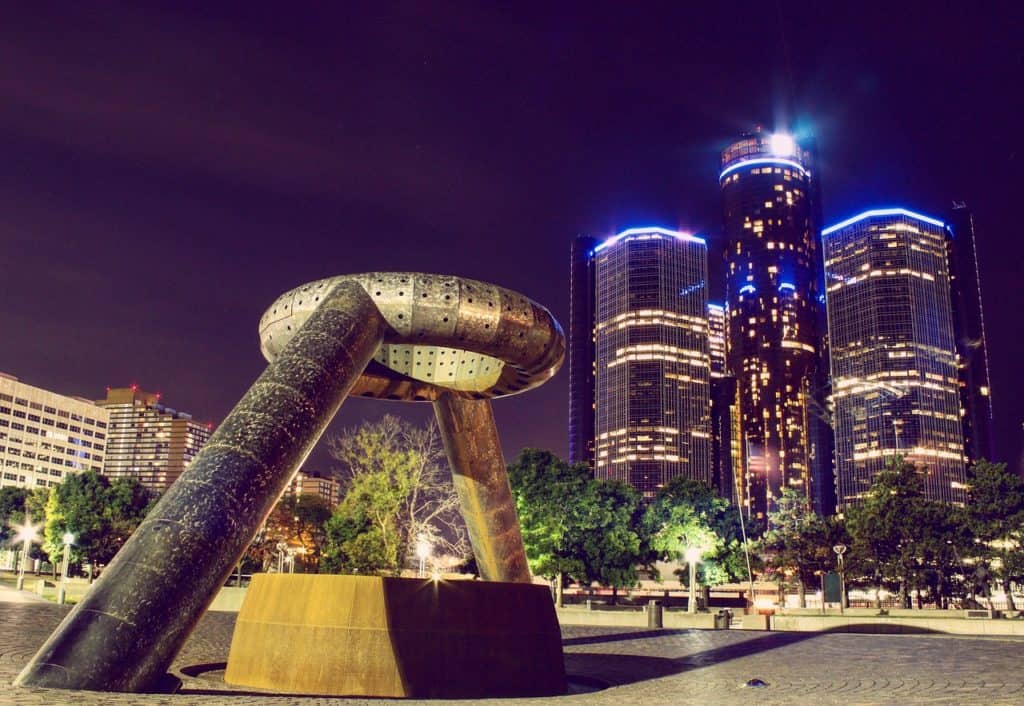GET YOUR FREE CONSULTATION! CALL NOW 313-217-5692
Umbilical cord blood and tissue collection in Detroit Michigan
Umbilical cord blood and tissue are collected immediately after birth via a non-invasive and pain-free procedure.
The umbilical cord is clamped and cut as usual, but instead of discarding the placenta and umbilical cord, they are collected by a trained healthcare professional.
The blood is extracted from the cord using a sterile needle and collected into a specialized bag with anticoagulants to prevent clotting. The tissue is collected by cutting a small piece of the cord and placing it into a sterile container.
Both cord blood and tissue are then transported to a laboratory for processing and storage.
This procedure is a safe and effective way to collect valuable stem cells that can be used for future medical treatments.


CORD BLOOD BANKING IN DETROIT MICHIGAN
What is Cord Blood banking in Detroit Michigan?
Cord blood banking is a procedure that has been gaining increased attention in the medical world for its potential to help treat a range of diseases and medical conditions.
In simple terms, cord blood banking involves collecting and storing stem cells from a newborn’s umbilical cord. These stem cells are rich in potential and can be used to help treat a range of illnesses, including certain cancers, blood disorders, and genetic diseases. As a result, many expectant parents are now considering cord blood banking as a way to secure their child’s health for the future.
The process of banking umbilical cord blood involves collecting the blood immediately after birth and sending it to a specialized facility for processing and storage.
The cost of storage can vary depending on the service provider and the length of storage time chosen. There are many factors to consider when deciding whether to bank cord blood, including family medical history and the potential future use of the stem cells.
What is cord and tissue banking in Detroit Michigan?
Cord tissue banking involves the collection and storage of the cord tissue, which is the gel-like material that surrounds the blood vessels in the umbilical cord. This tissue is rich in stem cells, which are the building blocks of the body’s immune and blood systems. The stem cells found in cord tissue are different from those found in cord blood, making it a valuable resource for future treatments.

Umbilical cord blood and tissue storage near Detroit Michigan
Umbilical cord blood and tissue are valuable sources of stem cells, which have the potential to treat a wide range of diseases.
To ensure the preservation of these stem cells, they are collected at the time of birth and stored in specialized facilities.
The most common method of storage is cryopreservation, where the stem cells are slowly frozen and stored in liquid nitrogen at -196°C.
This ensures that the stem cells can be retrieved and used for medical purposes for many years to come. Additionally, many cord blood banks also offer the option to store the umbilical cord tissue, which contains a different type of stem cell that can also be used for medical treatments.
Overall, proper storage of umbilical cord blood and tissue is crucial for their potential use in future medical treatments.
Detroit Michigan
Detroit, Michigan is a city with a rich and complex history. From its origins as a French fur trading post in the early 1700s, to its rise as the center of the American automotive industry in the early 20th century, Detroit has played a significant role in shaping American culture and economy. However, the city has also faced its fair share of challenges, including deindustrialization, urban decay, and a declining population. In recent years, however, Detroit has undergone a resurgence, with new businesses, residents, and cultural institutions contributing to a vibrant and diverse cityscape.
Despite its tumultuous history, Detroit remains a city of great pride and resilience. Its neighborhoods are home to a diverse mix of people and cultures, and its cultural offerings range from world-class museums to cutting-edge music festivals. In this blog post, we will explore the many facets of Detroit and examine what makes it such a unique and compelling city. From its stunning architecture to its thriving food scene, there
1. History of Detroit’s development
Detroit, Michigan is a city with a rich history of development that spans over three centuries. It was founded in 1701 by French explorer Antoine de la Mothe Cadillac, who established a fort on the Detroit River to protect the Great Lakes fur trade. In the centuries that followed, Detroit grew into a major transportation hub and industrial center, thanks to its strategic location on the river and proximity to natural resources like iron ore and lumber. The city played a crucial role in the American automobile industry, with major automakers like Ford, General Motors, and Chrysler establishing their headquarters there. The city’s growth and prosperity were further fueled by the boom of World War II, as Detroit’s factories manufactured bombers and other military equipment for the Allied forces. Despite facing challenges in the latter half of the 20th century, including economic decline and urban decay, Detroit has remained a resilient and vibrant city, with a rich cultural heritage and a bright future ahead.
2. Business opportunities in Detroit
Detroit Michigan presents a plethora of business opportunities for aspiring entrepreneurs and established business owners alike. Known as the Motor City and the birthplace of Motown music, Detroit has a rich history and a diverse economy. The city is home to major automotive manufacturers, like General Motors and Ford, and houses the headquarters of some of the largest companies in the country, including Quicken Loans and Little Caesars. Additionally, Detroit is experiencing a renaissance, with revitalized neighborhoods and a growing arts and culture scene. This provides businesses with opportunities to tap into emerging markets and engage with a diverse customer base. Furthermore, the city’s central location and access to major transportation routes make it an ideal location for businesses looking to expand their reach. Overall, Detroit Michigan offers a wealth of opportunities for businesses of all sizes and industries.
3. Top tourist attractions to visit
Detroit, Michigan is a city with a rich history and culture, making it a popular tourist destination. If you’re planning a trip to Detroit, there are some top tourist attractions that you simply shouldn’t miss. First on the list is the Henry Ford Museum of American Innovation, which showcases the history of American innovation, from early inventions to modern technology. The museum is home to a vast collection of artifacts, including the original Wright Brothers’ plane, the Rosa Parks bus, and John F. Kennedy’s limousine. The second must-see attraction is the Motown Museum, where visitors can learn about the history of Motown Records, one of the most influential record labels in the world. The museum offers tours of the original Hitsville USA studio, where famous musicians like Diana Ross and Stevie Wonder recorded some of their most famous hits. Finally, visitors to Detroit should also check out the Detroit Institute of Arts, which houses one of the largest art collections in the country. The museum’s collection includes everything from ancient Egyptian artifacts to contemporary art, making it a must-visit destination for art lovers.
4. Detroit’s diverse culinary scene
Detroit’s diverse culinary scene is a reflection of the city’s rich cultural heritage. The city has a long history of immigrants who have brought their culinary traditions and flavors with them, resulting in a vibrant food scene that caters to all tastes and preferences. From classic American dishes to international cuisine, Detroit offers something for everyone. Visitors can explore the city’s neighborhoods, each with its own unique culinary offerings, including the Greektown, Corktown, and Mexicantown districts, among others. The city is also home to a number of award-winning restaurants and chefs, further cementing its reputation as a food destination. Whether you’re in the mood for comfort food, vegetarian options, or innovative fusion cuisine, you’re sure to find it in Detroit’s diverse culinary landscape.
5. The role of music in Detroit’s culture
Detroit, Michigan has a rich cultural history that is deeply intertwined with music. One of the most notable aspects of Detroit’s cultural identity is its role as a center of musical innovation. Throughout the 20th century, Detroit became a hub for the creation and popularization of various forms of music, including jazz, blues, soul, and most famously, Motown. The Motown sound, created by the likes of Smokey Robinson, Diana Ross, and Marvin Gaye, is widely regarded as one of the most influential sounds in the history of American popular music. Today, Detroit’s music scene continues to thrive, with a wide range of venues hosting live music performances throughout the city and a vibrant community of local musicians and artists. Music remains an integral part of Detroit’s cultural identity and continues to inspire and influence artists and fans alike.
6. The importance of Detroit’s sports teams
The city of Detroit, Michigan, has a rich history in sports, and its sports teams play a significant role in the community. From the Detroit Tigers in baseball to the Detroit Red Wings in hockey, the city has a passionate fan base that supports its teams through thick and thin. The importance of Detroit’s sports teams extends beyond entertainment value as they provide a sense of community and pride. The teams have also played a vital role in the city’s economy, creating jobs and attracting visitors from all over the world. Additionally, the success of Detroit’s sports teams has brought attention to the city, improving its overall image and reputation. The city’s sports teams have become an integral part of its identity and are an essential aspect of the community’s spirit and vitality.
7. Detroit’s public transportation system
Detroit’s public transportation system has undergone significant changes in recent years, aimed at improving the quality of service and increasing accessibility for residents and visitors alike. The city’s primary public transportation provider is the Detroit Department of Transportation (DDOT), which operates a fleet of buses and streetcars throughout the city and surrounding areas. In addition, the city has partnered with the Regional Transit Authority (RTA) to develop a comprehensive regional transit plan that includes expanded bus and rail service, improved ride-sharing options, and increased access to affordable transportation for low-income residents. Despite these efforts, however, the system still faces challenges, including limited funding and outdated infrastructure. Nevertheless, Detroit’s public transportation system remains a critical component of the city’s infrastructure, helping to connect residents to jobs, education, healthcare, and other essential services.
8. Detroit’s rich art community
Detroit, Michigan is known for its rich art community that has been flourishing for decades. The city’s art scene has been shaped by its history and diverse population, resulting in a unique and eclectic mix of styles, mediums, and perspectives. Detroit’s art community is a testament to the city’s resilience and creativity, as well as a reflection of its cultural heritage and contemporary identity. The city is home to numerous art museums, galleries, and studios that showcase the works of local and international artists. From the Detroit Institute of Arts, which houses one of the largest and most significant art collections in the United States, to the many independent galleries and community art spaces, there is no shortage of opportunities to explore and appreciate the city’s vibrant art scene. Whether you are a seasoned art lover or a curious newcomer, Detroit’s rich art community offers something for everyone to enjoy and appreciate.
9. The impact of the automotive industry on Detroit
The automotive industry has played a significant role in the growth and development of Detroit, Michigan. The city has been the center of the American automobile industry since the early 20th century, with major car manufacturers such as Ford, General Motors, and Chrysler headquartered in the area. The industry has provided employment opportunities for thousands of people, making Detroit a hub for automotive engineering and manufacturing. However, the city has also faced challenges due to the impact of the automotive industry, including economic downturns, labor disputes, and environmental pollution. In recent years, efforts have been made to diversify the economy and attract new industries to the region, but the automotive industry remains an essential part of Detroit’s history and identity.
10. Umbilical cord blood and tissue banking Detroit Michigan
Detroit Michigan is home to several medical facilities offering umbilical cord blood and tissue banking services. Cord blood and tissue banking is the process of collecting and storing the stem cells found in a newborn’s umbilical cord blood and tissue for potential future medical use. This service can be vital for families who have a history of certain diseases, as well as those who want to ensure their child has access to their own healthy stem cells in case of a future medical need. In Detroit Michigan, there are several reputable companies offering umbilical cord blood and tissue banking services, ensuring that families have access to this valuable resource for their child’s health. These companies offer a range of options and packages to fit the needs and budget of any family. It is important for families to research and choose a company that meets their specific needs and offers high-quality storage and retrieval services.
In conclusion, Detroit, Michigan is a city that has undergone a significant transformation over the years. While it has faced challenges, the city has shown resilience and determination to overcome them. Today, Detroit is home to a thriving business community, a vibrant arts and culture scene, and a rich history that attracts visitors from all over the world. With its ongoing efforts to revitalize neighborhoods and invest in infrastructure, Detroit is poised for continued growth and success in the years to come. It is a city that embodies the spirit of the American Midwest and is well worth a visit for anyone seeking to experience all that this region has to offer.
GET YOUR FREE CONSULTATION! CALL NOW 313-217-5692
GET YOUR FREE CONSULTATION! CALL NOW 313-217-5692

GET YOUR FREE CONSULTATION! CALL NOW 313-217-5692
Table of Contents
Toggle